Engineering Design

Educators and Parents, Sign Up for The Cheat Sheet
Weekly updates to help you use Science News Explores in the learning environment
Thank you for signing up!
There was a problem signing you up.
-
 Health & Medicine
Health & MedicineDon’t use dinner-table spoons for liquid medicines!
Kids are safer when parents use precise tools to measure liquid medicines. Switching from teaspoons to metric tools could help, a new study finds.
-
 Health & Medicine
Health & MedicineTo remember something new: Exercise!
People who exercised strenuously for a half hour after learning something new cemented those memories. But the trick: Wait four hours before getting the heart pumping vigorously.
-
 Chemistry
ChemistryE-cigs create toxic vapors from harmless e-liquids
New study finds a primary source of toxic vaping compounds. It’s the heat-driven breakdown of the liquids that hold nicotine and flavorings. And older, dirtier e-cigs make higher amounts of the toxic chemicals.
By Janet Raloff -
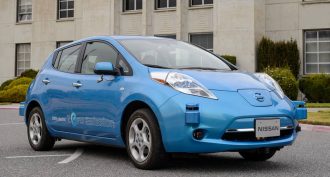 Tech
TechMoral dilemma could limit appeal of driverless cars
Driverless cars will have to be programmed to decide who to save in emergencies — passengers or pedestrians. Many people aren’t yet sure they are ready to choose cars that make the most moral decision.
By Bruce Bower -
 Chemistry
ChemistryGasp! At the movies, your breaths reveal your emotions
Researchers took air samples as they screened movies. What people exhaled were linked to film scenes’ emotional tone, they found.
-
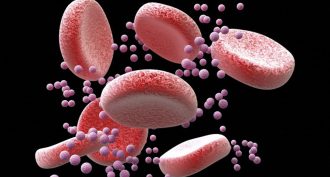 Health & Medicine
Health & MedicineZika vaccines look promising
As a Zika epidemic surges through Brazil and northward, scientists are looking for drugs to keep more people from becoming infected. Several vaccines show promise in early tests — but none has yet been tried in people.
By Meghan Rosen -
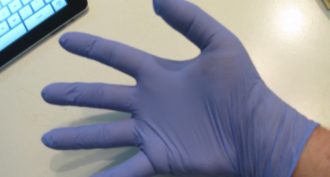
Teen makes sure bacteria stay hands-off
Germs are everywhere. One teen has designed a way to keep them from sticking to a surgeon’s gloves.
-
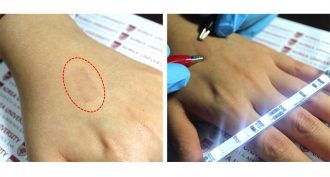 Tech
TechClear, stretchy sensor could lead to wearable electronics
Researchers have combined plastics and metal to make a transparent, stretchable sensor. It could soon find use in touchscreens, wearable electronics and more.
By Sid Perkins -
 Earth
EarthEarth’s tectonic plates won’t slide forever
Earth’s surface morphs, owing to the movement of its tectonic plates. But those plates didn’t use to move so quickly. And in a few billion years they’ll grind to a halt, new research suggests.
-
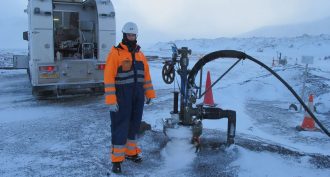 Climate
ClimateVolcanic rocks can quickly turn pollution into stone
A test program in Iceland injected carbon dioxide into lava rocks. More than 95 percent of the gas turned to stone within two years.
-
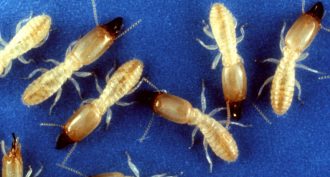
Ink leads way to terminating termites
Inspired by a classroom experiment, a teen has built a way to lure troublesome termites to their death — using the power of ink.
-
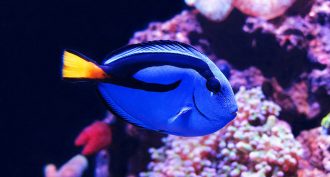 Animals
AnimalsCatching ‘Dory’ fish can poison entire coral reef ecosystems
More than half of saltwater-aquarium fish sold in the United States may have been caught in the wild using cyanide, new data show.